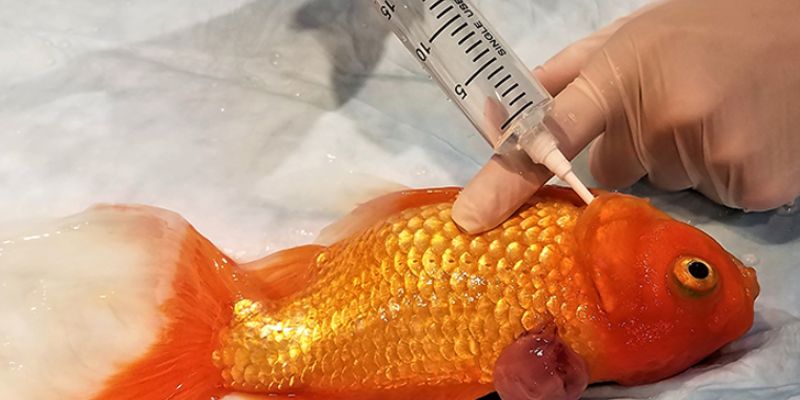Comprehensive Guide to Safeguarding Your Fish: Preventing and Curing Common Diseases. The health and happiness of fish in an aquarium depends on the owner’s careful attention to their needs. Unfortunately, like any other form of life, they might become ill. As an aquarium keeper, it is your responsibility to learn about the most prevalent fish diseases, what causes them, and how to effectively treat and prevent them. In this detailed manual, we’ll show you how to take care of your fish, frogs, and other aquatic pets properly.
Comprehensive Guide to Safeguarding Your Fish: Preventing and Curing Common Diseases
Common Fish Diseases: What You Need to Know
Multifiliis (Ich) Ichthyophthirius
Ich, or white spot illness, is a common ailment that affects fish. The parasite protozoan Ichthyophthirius multifiliis is to blame. Fish with the disease have white spots all over their bodies, fins, and gills that look like grains of salt or sugar. Lethargy, decreased appetite, and fast breathing are also possible symptoms.
Fin Rot
Your fish may have contracted a bacterial infection of the fins and tail called fin rot. Fish are more likely to contract this disease if their immune systems have been compromised in any way, whether by poor water quality, physical injury, or stress. Frayed, discolored, or eroding fins are possible symptoms in infected fish. The infection can spread to other parts of the body in extreme circumstances, posing serious health risks.
Swimmer’s Bladder Syndrome
Aquarium fish, especially those with a labyrinth organ like bettas and gouramis, are susceptible to swim bladder condition. Infected or damaged swim bladders prevent fish from properly controlling their buoyancy. Fish with this condition may float at the water’s top, lose their ability to swim upright, or even sink to the bottom of the tank.
Preventing Common Fish Diseases
Ensure Pure Water at All Times
Fish illnesses can be avoided by maintaining good water quality. Make that the water’s temperature, pH, ammonia, nitrite, and nitrate levels are all within the ranges recommended for your fish species by doing tests on a regular basis. To keep the water quality high and toxin-free, perform routine water changes and use a good filtration system.
Isolate ill Fish
Fish should be quarantined in a holding tank for at least two weeks before being introduced to the main aquarium. You can keep your current fish population healthy by following this procedure. Keep an eye out for any symptoms of sickness in the confined fish, and treat them if necessary, before releasing them into the main tank.
Provide a Well-Rounding Diet
The health of fish can be maintained and their immune systems strengthened with the right diet. Give your fish a varied diet of high-quality pellets, flakes, and freeze-dried or frozen treats on occasion. Overfeeding can contaminate water supplies and encourage the growth of hazardous bacteria, therefore it’s best to avoid doing that.
Curing Common Fish Diseases
Medication
It is essential to correctly diagnose the illness plaguing your fish before taking any remedial action. If you’re unsure what treatment is best, talk to a vet or an experienced aquarium worker. Be sure to administer the medication exactly as directed. Carbon filter should be removed before starting therapy since it can prevent the drugs from being absorbed.
Fish Isolation Barriers
If any of your fish starts showing symptoms of disease, you should quarantine it as soon as possible. By taking this measure, you reduce the risk of infecting your primary aquarium’s healthy fish population. Fish under quarantine should be given the required treatment and their progress should be constantly monitored.
Set the Stage for Success
Make sure your sick fish have a place to rest and get better. Provide a stable water environment, low levels of stress, and a healthy diet. In addition, you should lessen the tank mates’ aggression, the tank’s temperature swings, and the number of inhabitants.
Conclusion
You can keep your aquarium fish healthy by learning about the most prevalent fish diseases, using preventative measures, and acting quickly when necessary. It’s important to remember the basics, including keeping the water clean, introducing new fish slowly, and feeding them properly. When illness strikes, it’s important to get medical help, give the right meds, and set the stage for a speedy recovery. If you give them what they need, the fish in your water garden will flourish and become a source of great pleasure.


аренда мебели форум Деловое оборудование для деловых встреч. Эргономичное оснащение и оперативный монтаж.
аренда мебели в мо Прокат интерьера в МО. Доставка по области без дополнительной платы.
http://www.mebel-rental.ru Аренда качелей садовых для garden party. Подвесные диваны в аренду.